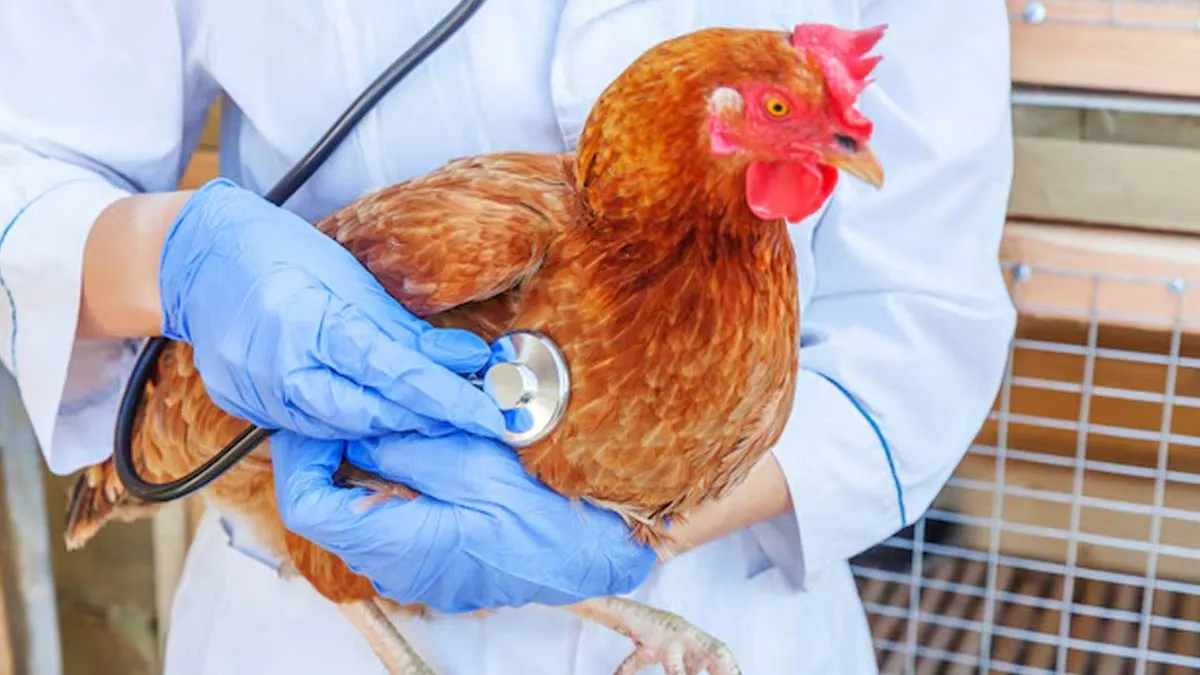
A recent outbreak of bird flu, also known as avian influenza or H5N1, in parts of India, including Maharashtra, Karnataka, and Telangana, has raised concerns. This highly contagious viral disease primarily affects birds, but can occasionally infect humans through contact with the saliva, nasal secretions, or faeces of infected birds.
Table of Content:-
In response, health authorities have taken swift action to control the spread.
Globally, from 2003 to April 1, 2024, the World Health Organization (WHO) recorded 889 cases and 463 deaths from H5N1 across 23 countries. While the current situation in India is being closely monitored, health officials like Harsh Gupta, Principal Secretary, Health and Family Welfare Department, have reassured the public that there is no immediate cause for concern, though maintaining vigilance remains essential. Bearing this in mind, here are some measures that people can take to protect themselves from possible infection.
Also Read: Bird Flu Outbreak In India: Is It Safe To Consume Chicken And Eggs?
Can Bird Flu Be Transmitted To Humans?

In an interaction with the OnlyMyHealth team, Dr Manav Manchanda, Director and Head - Respiratory, Critical Care and Sleep Medicine, Asian Hospital, Faridabad, says, "People rarely contract bird flu, but when they do, it is usually through direct unprotected contact (without the appropriate personal protective equipment, PPE) with diseased birds or other affected animals."
"Human disease caused by avian flu has varied from minor symptoms to death. However, most human instances of H5 bird flu have been mild thus far. Some nations have reported a limited person-to-person spread. Limited person-to-person dissemination indicates that the virus infects one or two people but does not spread further," he adds.
Explaining how avian flu can transmit to humans, the US Centers for Disease Control and Prevention (CDC) states: Infected birds shed avian influenza viruses through their saliva, mucous and faeces. Other animals infected with avian influenza viruses may have viruses present in respiratory secretions, different organs, blood, or in other body fluids, including animal milk. Human infections with avian influenza viruses can happen when the virus gets into a person's eyes, nose or mouth, or is inhaled. This can happen when a virus is in the air and deposits on the mucus membranes of the eyes or a person breathes it in, or possibly when a person touches something contaminated by viruses and then touches their mouth, eyes or nose.
Safety Measures To Curb Bird Flu Spread

To curb the spread of bird flu, particularly among humans, it is highly essential to handle food safely while handling and preparing at all times, says Dr Manchanda.
The key to safety is to properly prepare chicken, eggs, and other poultry products and to avoid cross-contamination between raw and cooked food.
According to the doctor, to prevent cross-contamination, it is recommended to wash hands with warm water and soap for at least 20 seconds before and after handling raw poultry and eggs. After cutting raw meat, wash cutting boards, knives, and countertops with hot, soapy water. Sanitise cutting boards with a solution of one tablespoon chlorine bleach in one gallon of water.
Also Read: Bird Flu Alert: Maharashtra Village and Nearby Areas Declared High-Risk Zone To Combat Spread
Should You Stop Eating Chicken And Eggs?
“Chiken and eggs that have been properly prepared and cooked are safe to consume,” says Dr Manchanda, adding that it is critical to practise proper food safety daily. In addition to correct processing, proper handling and cooking of birds helps protect against viruses and germs, including avian influenza. Everyday, we urge people to follow four essential food safety steps: CLEAN, SEPARATE, COOK, and CHILL.
Symptoms Of Bird Flu To Watch Out For
While it is crucial to take necessary precautions to prevent an infection with avian influenza virus, it is also crucial to watch out for any signs of infection. This is because early detection can prompt people to immediate measures that can curb further spread.
Some of the common symptoms of bird flu in humans include:
- Conjunctivitis or eye redness
- Mild flu-like upper respiratory symptoms
- Pneumonia requiring hospitalisation
- Mild fever; it may not always be the case
- Cough
- Sore throat
- Runny or stuff nose
- Muscle or body aches
- Headaches
- Fatigue
- Shortness of breath or difficulty breathing.
According to the CDC, less common signs and symptoms include diarrhoea, nausea, vomiting, or seizures.
Hygiene Measures To Follow
-1740118822821.jpg)
Individuals are recommended to take following steps to protect themselves amid bird flu outbreak:
- Only eat pasteurised dairy products
- Refrigerate and cook your eggs, meats, and poultry
- Get the human influenza vaccination
- Protect and vaccinate your pet
- Avoid interacting with wild, ill, or deceased birds and cattle
- Wash your hands thoroughly and frequently
- Follow public health advice
According to Dr Manchanda, people with weakened immune systems or chronic illnesses should take extra precautions to avoid bird flu, especially when handling poultry. These include:
- Avoid eating undercooked or uncooked poultry.
- Cook poultry to the appropriate internal temperature
- Wash hands, utensils, and surfaces after handling raw eggs.
- Avoid direct contact with dead or sick poultry
- Wear recommended PPE if you must have close contact with poultry
Conclusion
A bird flu outbreak is concerning as it can not only spread to other animals but can also occasionally infect humans, leading to severe illness if left unmanaged. Amid reports of a bird flu outbreak in parts of India, it is crucial to take necessary measures and work towards curbing the infections. Maintaining hygiene, ensuring proper cooking of poultry items like chicken and eggs, and regular health monitoring of animals in farms are some of the steps people should take. Moreover, addressing flu symptoms early is another way to take timely action and prevent the spread of the virus. Consult a doctor if you experience any related signs and complications.
Also watch this video
How we keep this article up to date:
We work with experts and keep a close eye on the latest in health and wellness. Whenever there is a new research or helpful information, we update our articles with accurate and useful advice.
Current Version
